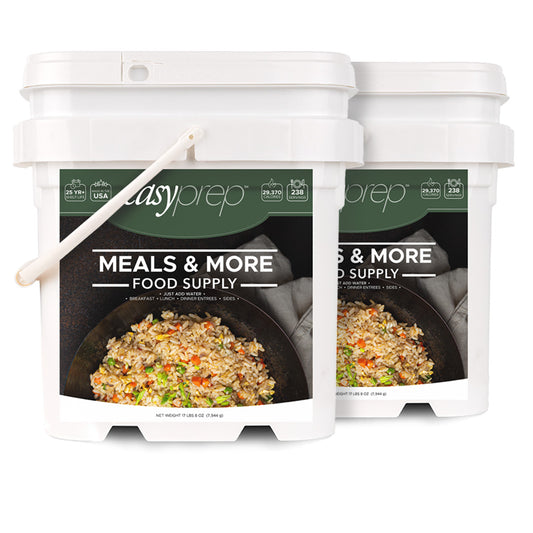Should You Raise Pigs?
I'm sure you saw the title of this article and immediately thought, "I already live with a few."
However, whether you're a self-reliant homesteader or just want to cut away from your food budget, raising pigs (of the porcine variety) is a great way to become more self-reliant and sufficient. If you raise your own meat in any scenario, you will have more control over how it is raised and fed, and you can make sure that it is essentially raised organically (whether or not you apply for organic certification).
Raising your own meat is less expensive than purchasing meat that is not factory-farmed. And raising your own meat is sustainable in the event of economic hard times – the source is right there on your own land. In fact, you may be able to barter your homesteaded meat with others in the community for useful supplies and resources.

Space Requirements for Pigs
The first and probably the most influential question to consider is how much space you are working with.
Pigs are very social animals, and do well in groups of two or more. You’ll want to have at least that many if you intend to breed your pigs for the long term. They don’t need a great deal of room, although you will have to give them enough space to be comfortable – any enclosure should allow for at least ten or fifteen square feet per animal.
Hog panels are the most affordable means of enclosing pigs that is also effective. Make sure their enclosure has at least a partial roof to give the pigs shade as well as some shelter from inclement weather. And pigs will appreciate it if you provide them with a few bales of hay for bedding.
Food for Your Pigs
Pigs eat a lot, as anyone knows – but they require a balanced diet to be healthy and produce quality meat. You can pasture your pigs for part of their diet, but they also need a rich source of protein as well. While pelleted pig feed is sold commercially, you can also construct a balanced diet of table scraps, boiled eggs, apples, pumpkins, and cracked corn.
Many people will tell you that you can raise a pig on any type of food - "They'll eat anything." While this might be partly true, your pigs will produce better results and higher-quality fertilizer if you feed them a balanced diet. Be careful not to get too carried away with the protein you feed your pig. Many people know that pigs need protein and get carried away giving them too much. Instead keep to a balanced diet.
Compost
Like we hinted at above, one of the advantages of raising pigs is that their manure is as rich as their diet. Pig manure can be composted along with green and brown garden matter to create a rich fertilizer that your vegetable gardens will certainly benefit from.

Keeping Your Pigs Healthy
Pigs are generally very healthy, robust animals that will make it from birth to bacon without so much as a runny nose. But it is still a good idea to make sure you know your local livestock veterinarian in the event that you do encounter any issues with your animals. It’s also a wise practice to treat your animals with anti-parasitic medication; if they develop a parasite it can wreak havoc on your entire herd.
From Birth to Bacon
While pigs can be a great way to treat your kids responsibility, most people raise pigs in order to eat them. If you are homesteading your pigs, you’ll want to find a local processor who can slaughter them for you, as it is difficult work. If money is pretty tight, you may not have this luxury, so you will want to learn how to properly raise, slaughter and dress your animals. Have a seasoned hunter or professional help you the first few times until you know what you’re doing.
Do You Raise Pigs?
Do you or someone you know raise pigs? We'd love to hear from you. Comment below and tell us what recommendations you have about raising pigs. What lessons did you learn and what advice do you have for others?











